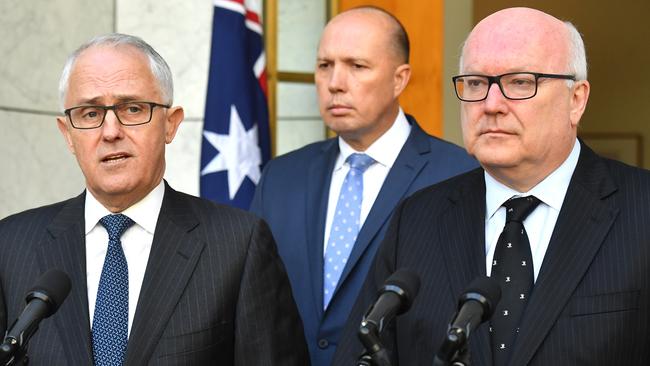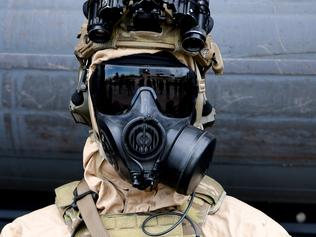Islamic State targets Southeast Asia as next frontline
Islamic State is focusing on Southeast Asia to create a beachhead beyond the Middle East, warns a new report.

Islamic State is focusing on Southeast Asia to create a beachhead beyond the Middle East, having already lured hundreds of people from Indonesia and Malaysia to fight for the group, according to a new report.
The Australian Strategic Policy Institute will today report that Islamic State is also pushing to extend its reach in the southern Philippines, including by offering students a $209 “joining bonus’’.
Several planned attacks — with collusion by military personnel in Malaysia — have already been pre-empted.
The institute urges “greater emphasis on formalising genuine counter-terrorist co-operation within ASEAN’’.
Australia is well placed to support such stepped-up anti-Islamic State efforts, it says.
But the report, by Peter Chalk, an adjunct senior political scientist with the US RAND Corporation, also warns that “meaningful progress ... continues to be stymied by the normative preference among (ASEAN) member states for non-interference in internal affairs, and unanimity in decision making’’.
Dr Chalk points to the “growing presence in Australia” of Islamic State, “despite our multicultural character, relative affluence and distance from the Middle East’’. The report says Southeast Asia is home to about 15 per cent of the world’s 1.6 billion Muslims and is “vulnerable to the group’s militant penetration’’.
“There are definite indications that IS has managed to establish a footprint in Indonesia and Malaysia, but it’s had a far less pronounced impact in the southern Philippines and has singularly failed to co-opt the festering insurgency in Thailand’s so-called deep south,” the report will say.
Malaysia is generally regarded as the focal point for Islamic State support and influence in the region, it says, with up to 150 people travelling to Syria and Iraq to become fighters, often alongside Indonesian volunteers.
Most remain in the Middle East, but some have returned. At least 122 people have been arrested in Malaysia since 2013 for having links with Islamic State, the report says. Twenty “seasoned” jihadists were arrested in August last year for planning to bomb bars, discos and the Carlsberg brewer in Malaysia’s administrative centre of Putrajaya. Explosives ingredients had already been bought, and plans laid for travel to Syria and Iraq for training.
Eight months ago the Malaysian authorities detained 17 people for conspiring to kidnap the Prime Minister, Defence Minister, Home Minister and other high-profile figures to secure the release of all Islamic State prisoners and suspects held under counter-terror laws.
Twelve others were intercepted in April in Malaysia’s Central Selangor state carrying 40kg of explosives for attacks on government buildings and police stations. Those arrested have included two members of the Royal Malaysian Air Force who were allegedly helping transport Malaysians to the Middle East, and two commandos.
Malaysia has strengthened its legal powers to fight Islamic State. And the state-run Malaysian Islamic Development Authority has issued a fatwa declaring the Islamic State caliphate illegal under sharia and denying the title “martyr” to those who die for it.
Dr Chalk says that Indonesia’s National Anti-Terrorism Agency, the BNPT, has this year cited the number of those travelling to fight with Islamic State as more than 500, of whom 43 are known to have died. He says the Australian Federal Police has issued international warnings about two Indonesian commercial airline pilots, Ridwan Agustin and Tommy Hendratno, alleged to have joined Islamic State.






To join the conversation, please log in. Don't have an account? Register
Join the conversation, you are commenting as Logout